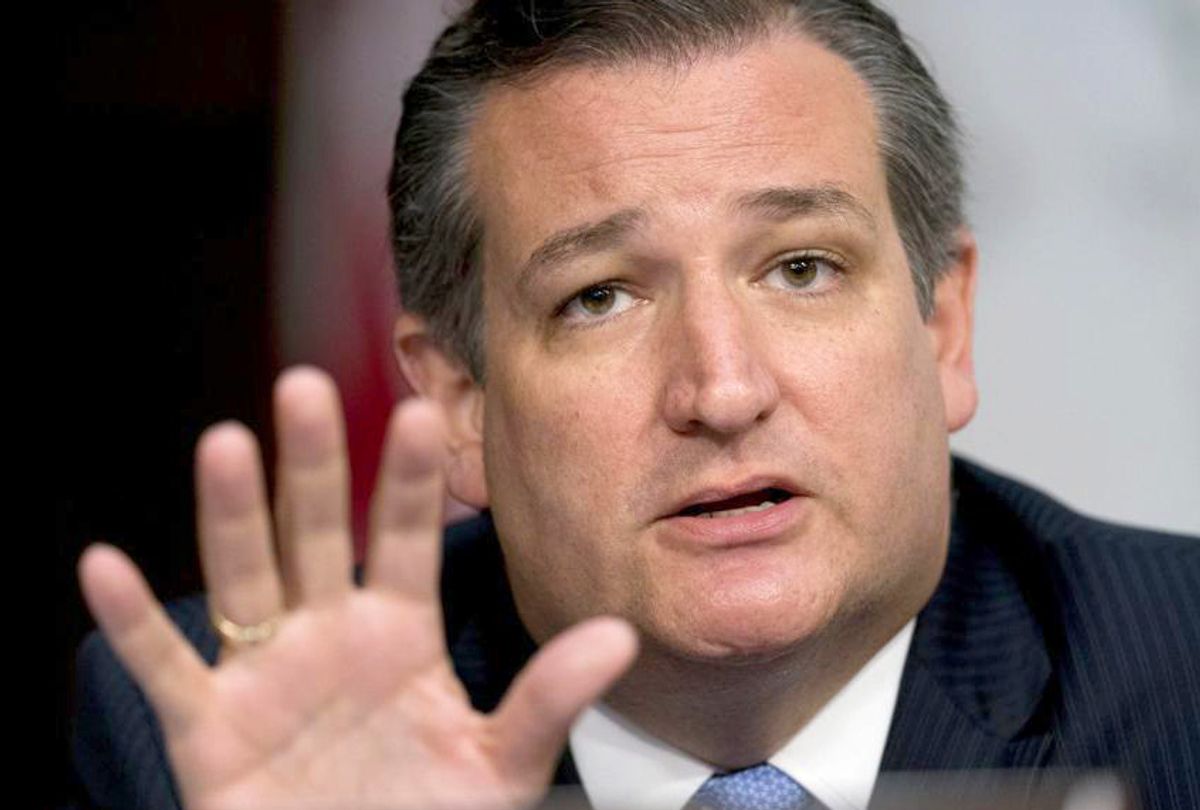Sen. Ted Cruz, R-Texas, a longtime critic of presidents who use executive action, sent a letter signed by 20 of his Republican colleagues asking the Trump administration to unilaterally slash taxes for the rich.
The Republican senators sent a letter to Treasury Secretary Steven Mnuchin on Monday asking him to use his “authority” to index capital gains to inflation. The move would allow investors to pay lower taxes on profits made from selling real estate, stocks or bonds by adjusting the original purchase price so that there would be no tax liability on appreciation tied to inflation.
“The United States economy has experienced historic levels of growth as a result of Congress and the current Administration’s policies such as the Tax Cuts and Jobs Act,” the letter claimed, falsely. (The Congressional Research Service found these policies had no impact on growth or wages.) The move, the letter said, would ensure that “everyday Americans can continue to enjoy better lives and livelihoods.”
A 2018 study by researchers at Penn Wharton found that indexing capital gains to inflation would not significantly benefit “everyday Americans.” About 95 percent of the benefits from the move would go to the top 5 percent of taxpayers, according to the study.
The letter urged Mnuchin to use “executive authority” to remove the “unfair” tax that primarily affects the uber-wealthy.
It’s quite a reversal from Cruz’s previous criticism that presidents who act unilaterally through executive action “should concern every citizen.” Using executive authority to bypass Congress was “lawless” and akin to “dictatorships,” Cruz wrote in a Wall Street Journal op-ed when Barack Obama was in office.
It’s also unclear how Cruz and Sen. Rand Paul, R-Ky., who also signed the letter after opposing a 9/11 first responders compensation bill because it wasn’t revenue-neutral, plan to pay for the massive tax cut they seek. According to Penn Wharton, the move would cost the U.S. more than $100 billion in tax revenues.
“Indexing capital gains to inflation would unlock capital for investment, increase wages, create new jobs, and grow the economy, benefiting Americans across all income levels,” the letter said.
This is the same argument Republicans and Trump used when pushing the 2017 tax cuts, which they claimed — despite numerous studies to the contrary — would pay for themselves. According to the Congressional Budget Office, the tax cuts will actually cost about $1.9 trillion even after accounting for growth, and the House Budget Committee found that the benefits of the cuts have disproportionately benefited the wealthy and large corporations.
Mnuchin has been noncommittal on the idea thus far.
“Right now there’s no commitment to getting it done or not getting it done,” he told Bloomberg News last month. “It’s a policy that has been under consideration and remains under consideration.”
Bloomberg reported that National Economic Council director Larry Kudlow has long been a proponent of the change and that Trump has been “looking for issues to win favor with voters and donors.”
But even those on the right don’t think the move would help Trump win over Republican voters.
“You can soundly put me in the camp that I don’t think the economic effects will be very large or very noticeable,” Kyle Pomerleau, an economist at the right-wing Tax Foundation, told Bloomberg. “If this is the strategy to juice the economy before the election, this is certainly not the best way to do it.”
A group of Senate Democrats, led by Sen. Sherrod Brown of Ohio, sent their own letter to Mnuchin earlier this month recommending against the change.
“We urge you to reject reported plans to use questionable authority to — yet again — lavish tax cuts upon our country’s wealthiest,” Brown wrote, “while middle class families and working people continue to see costs rise and wages stagnate.”



Shares